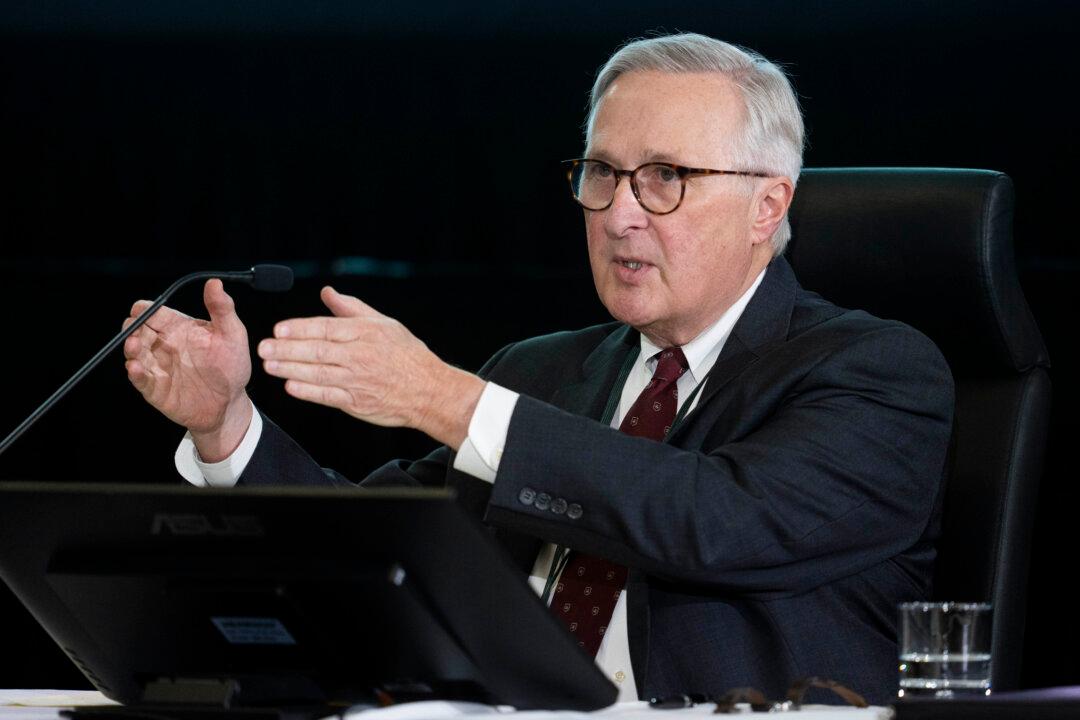A former director of Canada’s spy agency says the tendency of government entities to protect and over-classify information plays well with officials who seek to avoid public controversy.
“Over time, the protective culture becomes dominant and this actually sits well with ministers and central agencies and senior officials, especially when ... the practical effect is reducing the likelihood of controversy,” Richard Fadden told the Public Inquiry into Foreign Interference on Jan. 31.





